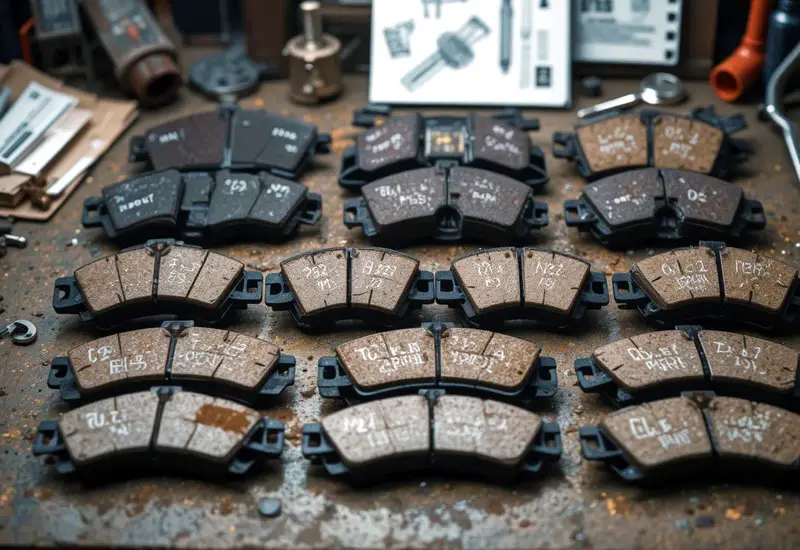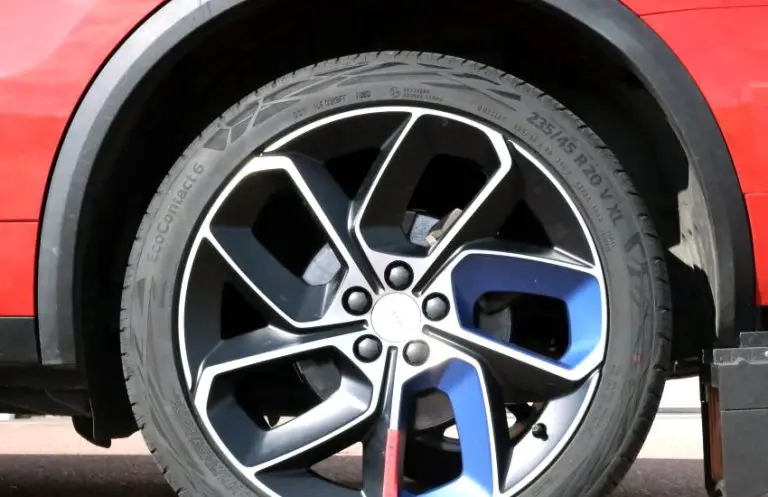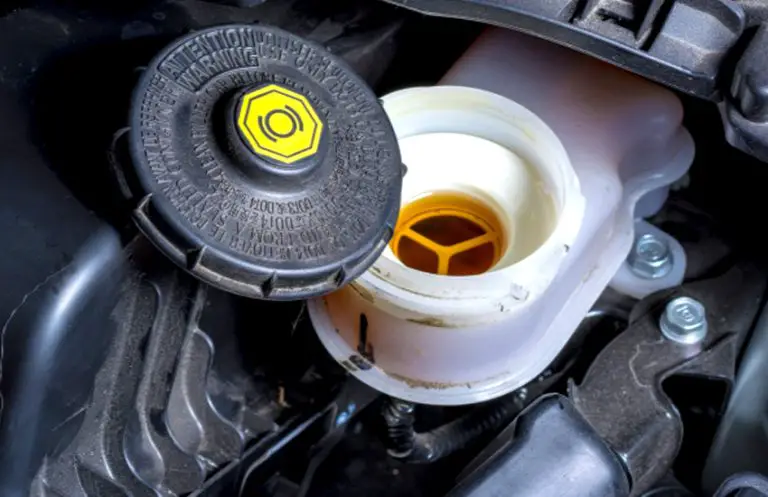When it comes to your car, brake pads are one of the most crucial components for your safety. But have you ever wondered if brake pads are interchangeable between different vehicles? It’s a question that may cross your mind the next time you’re shopping for brake pads or dealing with a repair. While the simple answer might seem obvious, the truth is a bit more complex. In this blog post, we’ll dive deep into the world of brake pads, exploring how they work, what affects their compatibility, and why it’s important to choose the right ones.

Understanding Brake Pads: Basics and Function
Before we get into whether brake pads are interchangeable, it’s important to understand what they are and how they work. Brake pads are a critical part of your car’s braking system. They are designed to create friction against the brake rotor, which helps your car slow down or stop. When you press the brake pedal, hydraulic fluid pushes the brake caliper, which holds the brake pads. These pads then clamp down onto the brake rotor, causing friction, which in turn reduces the speed of your vehicle.
Now, let’s break it down a bit further:
What Are Brake Pads Made Of?
Brake pads come in various materials, each designed to suit different types of driving and vehicle needs. The most common materials used are:
- Organic pads: Made from materials like rubber, carbon, and glass. These are the quietest but wear out faster.
- Semi-metallic pads: Contain metal fibers like copper or steel. They offer better performance but can be noisy.
- Ceramic pads: Made from ceramic fibers, these pads last the longest and produce less dust, but they’re often more expensive.
Each type has its benefits and drawbacks, depending on what kind of car you drive and how you use it. For example, sports cars may require semi-metallic pads for better performance, while everyday commuter cars might be better suited for organic or ceramic pads.
How Brake Pads Wear Out
Brake pads wear down over time due to the constant friction against the brake rotor. Every time you brake, tiny bits of the pad are slowly shaved off. Eventually, they become too thin to function properly. That’s when it’s time to replace them. How fast they wear out depends on your driving habits, the type of brake pads you use, and the conditions in which you drive. For example, city driving with lots of stop-and-go will cause brake pads to wear out faster than highway driving.
Now that you understand the basics, let’s talk about whether these brake pads are interchangeable between different vehicles.
Factors That Determine Brake Pad Compatibility
Brake pads are not as simple as they seem. There are several factors that influence whether brake pads are interchangeable between different vehicles. These include the size, shape, material, and design of the brake pads. Let’s break down these key factors to understand why not all brake pads are created equal.
Vehicle Specifications
Every car model is designed with specific brake components in mind. This includes the size of the brake pads, the shape, and the mounting points. For example, sports cars often have larger and more powerful braking systems compared to regular sedans. This means that the brake pads for a sports car will be larger and designed for higher performance. On the other hand, the brake pads for a small sedan may be smaller and designed for more everyday use.
Brake Pad Design and Mounting
Brake pads come in different designs. Some brake pads are designed to fit in a floating caliper system, while others fit into a fixed caliper. The design of the caliper can affect the type of brake pad that’s required. The caliper is the part of the braking system that holds the brake pads and presses them against the rotor. If the caliper design on two cars is different, it’s likely that the brake pads won’t be interchangeable.
Rotor Size and Compatibility
The size of the rotor also plays a significant role in brake pad compatibility. If you try to fit a brake pad designed for a smaller rotor onto a larger rotor, it simply won’t fit properly. Rotors vary in size depending on the vehicle’s performance requirements. For example, performance vehicles have larger rotors to dissipate heat more efficiently, and the corresponding brake pads are designed to fit these larger rotors.
Brand and Model-Specific Design
Different car manufacturers may have proprietary designs for their brake systems. Some brands, like luxury car manufacturers, may use specialized materials and designs that make their brake pads unique to that brand. While aftermarket parts may offer similar features, they might not be a perfect fit for every vehicle, making it crucial to check compatibility with the vehicle’s manufacturer specifications before making a purchase.
Performance Needs
Finally, how you use your vehicle can affect the type of brake pads you need. If you often drive in mountainous areas or tow heavy loads, you may need brake pads that can withstand higher temperatures and provide more stopping power. Regular city driving, on the other hand, might not require the same level of performance. This means that the brake pads designed for these specific needs will not always be interchangeable between different vehicles.
How Vehicle Make and Model Affect Brake Pad Interchangeability
When you’re dealing with brake pads, it’s not just about the size or shape. The make and model of your car play a huge role in determining whether brake pads can be swapped between vehicles. The suspension system, braking system, and even the engine type can influence the specific design of the brake pads required for your car.
OEM vs Aftermarket Brake Pads
OEM (Original Equipment Manufacturer) brake pads are designed specifically for your car by the manufacturer. They are made to match the exact specifications of your vehicle’s braking system. Aftermarket brake pads, on the other hand, are produced by third-party companies and may offer a broader range of options. These pads are made to fit various makes and models, but it’s essential to check the specific part numbers and specifications to ensure they’ll work for your vehicle.
The Role of Vehicle Suspension
The suspension system of a vehicle plays a significant role in the overall design of the brake system. Vehicles with sportier suspensions, such as sports cars or performance vehicles, often have larger rotors and more advanced brake systems that require specific brake pads. A sedan with a standard suspension system will typically have smaller, less complex braking components. The differences in suspension design mean that brake pads aren’t always interchangeable between different types of vehicles, even if the pads seem similar in size.
Vehicle Weight and Braking Power
The weight of the vehicle can also affect the type of brake pads you need. Heavier vehicles, like trucks and SUVs, need more powerful brakes to slow them down effectively. These vehicles usually have larger brake components and, therefore, require different brake pads than lighter vehicles. The additional weight places more stress on the braking system, which is why these vehicles often use brake pads designed to handle the extra load.
Brake Caliper Design
As mentioned earlier, brake calipers come in different designs, and this plays a significant role in determining brake pad compatibility. Calipers can be floating (moving) or fixed (stationary). The brake pads that fit a floating caliper won’t necessarily fit a fixed caliper. If you’re trying to swap brake pads from one vehicle to another, you’ll need to make sure that the calipers are compatible as well.
Differences Between OEM and Aftermarket Brake Pads
When choosing brake pads, you’ll come across two main types: OEM (Original Equipment Manufacturer) brake pads and aftermarket brake pads. While they may seem similar, there are some significant differences between the two. Let’s take a look at each option to help you decide which is right for your car.
OEM Brake Pads: Pros and Cons
OEM brake pads are made by the same company that manufactured your car. These pads are designed to meet the exact specifications of your vehicle’s braking system. They are often recommended by car manufacturers because they are tested to ensure proper performance and safety.
Pros of OEM brake pads:
- Perfect fit: Since they are designed specifically for your vehicle, you can be sure they will fit perfectly.
- Manufacturer warranty: Using OEM parts can help maintain your car’s warranty and avoid potential issues with insurance or resale value.
- Quality assurance: OEM parts undergo rigorous testing to meet the manufacturer’s standards, ensuring top-notch performance.
Cons of OEM brake pads:
- Higher cost: OEM brake pads tend to be more expensive compared to aftermarket options.
- Limited options: Since they are made specifically for your car, you may not have as many choices in terms of materials and performance features.
Aftermarket Brake Pads: Pros and Cons
Aftermarket brake pads are produced by third-party companies and can be designed to fit a wide variety of vehicles. They are often more affordable and come in a range of materials, such as organic, semi-metallic, and ceramic. Let’s look at the pros and cons.
Pros of aftermarket brake pads:
- Lower cost: Aftermarket options are generally less expensive than OEM pads.
- Variety of options: There are many aftermarket brake pads to choose from, giving you more flexibility in terms of performance and materials.
- Better performance: Some aftermarket brake pads are designed for higher performance, such as those used in sports cars or heavy-duty trucks.
Cons of aftermarket brake pads:
- Risk of poor fit: Aftermarket parts may not always fit perfectly, especially if they are not designed for your exact vehicle.
- Variable quality: Not all aftermarket pads are created equal, so you need to be careful about choosing a reputable brand.
Which Should You Choose?
Whether you choose OEM or aftermarket brake pads depends on your priorities. If you want guaranteed performance and the peace of mind that comes with using manufacturer-approved parts, OEM might be the way to go. However, if you’re looking for a more affordable option or something with better performance, aftermarket brake pads can be a great choice—just make sure they’re compatible with your vehicle.
The Risks of Using Incompatible Brake Pads
Using incompatible brake pads is not something you want to take lightly. While it may seem like a small issue, it can lead to serious problems down the road. Let’s explore why using the wrong brake pads can be dangerous for you and your vehicle.
Poor Performance
The most immediate risk of using incompatible brake pads is poor braking performance. If the brake pads don’t fit properly or are made from the wrong materials, they won’t provide the necessary friction to slow down or stop your vehicle effectively. This can lead to longer stopping distances, reduced braking power, and a potentially dangerous situation, especially in emergency braking situations.
Damage to Brake System Components
If the brake pads don’t fit correctly or are made from incompatible materials, they can cause damage to other components of the braking system, such as the rotors, calipers, or brake lines. For example, pads that are too thick might cause the calipers to bind, leading to uneven wear or even failure of the caliper. On the other hand, pads that are too thin may wear out faster, causing excessive heat buildup and potential rotor damage.
Safety Hazards
The most important risk of using incompatible brake pads is the safety hazard it poses. Brake pads are designed to stop your car in a safe and controlled manner. If they’re not working properly, it can be difficult to slow down or stop when you need to. This increases the risk of accidents, especially if you’re driving in emergency situations or at high speeds.
Warranty and Insurance Issues
If you use non-compatible brake pads, it could also affect your car’s warranty or insurance coverage. Some manufacturers require that only OEM parts are used for repairs to maintain the warranty. Using aftermarket brake pads that aren’t approved by your vehicle’s manufacturer could void your warranty, leaving you with expensive repair costs down the line.
Tips for Choosing the Right Brake Pads for Your Vehicle
Choosing the right brake pads can be a daunting task, especially with so many options available. But don’t worry! Here are some tips to help you make the right choice and ensure your vehicle’s safety and performance.
1. Check Your Vehicle’s Manual
Start by checking your vehicle’s owner manual for information about the recommended brake pads. The manual will usually provide details on the exact specifications needed, such as size, material, and performance requirements. This will help guide you in the right direction when selecting brake pads.
2. Consider Your Driving Style
If you do a lot of city driving with frequent stops, you may want to opt for brake pads that are designed for quieter performance and less dust. If you’re a performance driver, you may want to look for semi-metallic or ceramic pads that can handle higher temperatures and provide better stopping power.
3. Consult a Mechanic or Expert
If you’re unsure about which brake pads are best for your vehicle, don’t hesitate to consult a professional mechanic. They can recommend the right pads based on your vehicle’s make, model, and driving conditions. A professional can also help you avoid the risks associated with incompatible brake pads.
4. Compare Prices and Quality
When shopping for brake pads, make sure to compare prices and quality. Sometimes, the cheapest option isn’t the best. Look for brake pads that offer a balance between cost, durability, and performance. You don’t want to skimp on safety, so choose a reputable brand that meets your vehicle’s requirements.
5. Replace Pads in Pairs
Finally, when replacing brake pads, always replace them in pairs—both front and rear pads should be replaced at the same time. This ensures even braking and helps prevent uneven wear, which could lead to brake system problems down the road.
I hope this guide has helped clear up the confusion about brake pad compatibility. Choosing the right brake pads is essential for your vehicle’s safety, so always take the time to ensure you’re making the right choice. Whether you go for OEM or aftermarket pads, the key is ensuring they fit your car’s specifications and driving needs.
Frequently Asked Questions
Is it possible to use brake pads from different vehicle brands?
It’s not recommended, as brake pads are designed to fit specific models. Always check compatibility with your car’s make and model.
Can brake pads be used across different car models from the same manufacturer?
In some cases, brake pads from different car models by the same manufacturer may be compatible, but it’s important to verify the part numbers.
Do I need to replace all brake pads at the same time?
Yes, it’s best to replace all brake pads at once to ensure even braking and prevent damage to other components.
Is it safe to use aftermarket brake pads?
Yes, aftermarket brake pads can be safe if they are of high quality and compatible with your vehicle. Always check compatibility before purchase.
Can I switch from organic brake pads to ceramic pads?
Yes, you can switch, but make sure the new pads are compatible with your vehicle’s braking system and driving needs.
Do I need to replace brake pads every time I change my tires?
It’s not necessary, but it’s a good idea to inspect your brake pads regularly during tire changes to ensure they are in good condition.
Is it hard to install new brake pads?
While it’s not extremely difficult, installing brake pads requires some mechanical knowledge. It’s often best to let a professional handle the installation.
Can I use used brake pads?
It’s not advisable to use used brake pads, as they may have worn down unevenly and may not provide the necessary braking power. Always use new pads.


